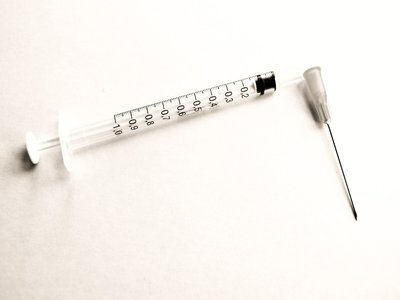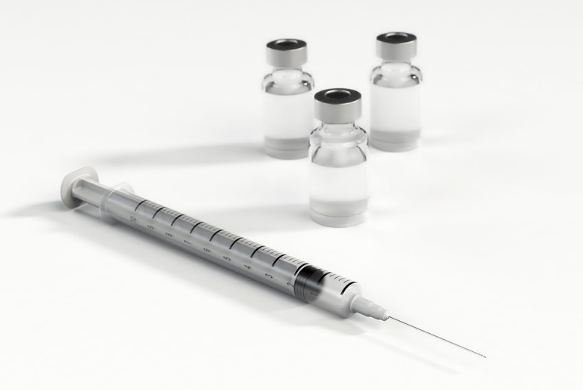As a parent or caregiver, keeping your baby healthy and safe is likely one of your top priorities. One of the most important ways to protect your little one is by ensuring they receive the recommended vaccines at the appropriate ages. Vaccines work to prevent the spread of dangerous diseases that can have serious, and sometimes deadly, consequences for babies.
We’ll explore the most important vaccines for babies, their benefits, and why staying up-to-date on their immunizations is crucial for their overall health and wellbeing.
Introduction: Why Vaccinations are Important for Babies
Vaccinations are crucial for protecting babies from infectious diseases. With an underdeveloped immune system, babies are susceptible to serious illnesses that can cause long-term health issues, disability, or even death. Vaccines not only protect the individual but also contribute to keeping communities healthy by preventing the spread of diseases. Most families opt to follow the recommended vaccination schedule. Vaccines undergo rigorous testing to ensure their safety and efficiency. Serious side effects are extremely rare, and mild reactions usually go away on their own within a few days. Vaccines are the safest, most effective, and easiest way to help keep your baby healthy. [1][2]
Centers for Disease Control and Prevention (CDC) and American Academy of Pediatrics (AAP) Recommendations
The Centers for Disease Control and Prevention (CDC) and the American Academy of Pediatrics (AAP) provide clear and scientifically-backed recommendations for the administration of vaccines to children. These guidelines are based on extensive research and are periodically updated to reflect the latest scientific advancements. Following the recommended vaccination schedule is essential in order to ensure that children are protected against preventable diseases. Parents can trust these organizations to provide reliable and accurate information about the vaccines that are best for their children. By adhering to these recommendations, parents can help safeguard their children’s health and wellbeing. [3][4]
Timing of Vaccinations: Following the Schedule
Following the recommended schedule for vaccinations is crucial to ensure maximum protection for babies against various illnesses and diseases. Vaccines are not just a one-time shot; they require multiple doses and specific timing to effectively build up immunity in the child. Delaying or missing doses can put the baby at risk for serious health issues. Doctors and healthcare providers are trained to administer vaccines at the right time and provide guidance to parents about the importance of following the schedule. It is vital to keep track of your baby’s immunization record and make sure they receive their vaccines on time to keep them protected. [5][6]
DTaP Vaccine: Protection Against Diphtheria Tetanus and Pertussis
DTaP vaccine is a combination vaccine that provides protection against three serious diseases: diphtheria, tetanus, and pertussis. It is highly recommended for all babies, as well as children and adults who require booster shots. The vaccine is administered as a series of five injections at 2, 4, and 6 months, and 15-18 months, and 4-6 years of age. The vaccine has virtually eliminated diphtheria and tetanus in childhood and has significantly reduced the number of pertussis cases. Although rare, the vaccine may cause mild side effects such as fever and redness or swelling at the injection site. Overall, the DTaP vaccine is a safe and effective way to protect against serious diseases. [7][8]
Tdap Vaccine: TDaP For Older Children and Adults
The Tdap vaccine is recommended for older children and adults to protect against tetanus, diphtheria, and pertussis. Boosters are recommended every 10 years with either Tdap or Td (only tetanus and diphtheria). Pregnant women should get Tdap in the second half of each pregnancy, even if they’ve been vaccinated in the past. People who get a deep cut or severe burn need to get a dose of Tdap or Td to prevent tetanus infection. The use of the Tdap vaccine has greatly reduced the number of pertussis cases. Mild side effects may occur, such as fever, mild crankiness, tiredness, loss of appetite, and tenderness, redness, or swelling in the area where the shot was given. [9][10]
Haemophilus Influenzae Type B (Hib) Vaccine
The Haemophilus Influenzae Type B (Hib) Vaccine is crucial for protecting infants and young children from severe and potentially deadly infections caused by the Hib bacteria. Hib disease can cause meningitis, pneumonia, and infections of the blood, joints, and bones. Before the introduction of the Hib vaccine, Hib disease was the leading cause of bacterial meningitis among children under 5 years old in the United States. The vaccine is typically given in 3-4 doses and is usually started at the age of 2 months. The Hib vaccine is considered safe and effective, with rare instances of side effects such as redness and swelling at the injection site or fever. Talk to your healthcare provider to learn more about the benefits and risks of the Hib vaccine. [11][12]
Hepatitis B Vaccine: Protection from Liver Disease and Cancer
The Hepatitis B vaccine is a crucial part of a baby’s immunization schedule as it offers protection against potential liver disease and cancer caused by the Hepatitis B virus. It not only protects your child but also those around them, as a person can unknowingly spread the virus to others. The vaccine is safe and the possible side effects are mild, such as a low-grade fever or a sore arm. Infants and young children may not display any symptoms but can still carry the virus, so it is important to vaccinate early. This vaccine has helped in decreasing the incidence of Hepatitis B virus infections in the United States and can make a significant impact worldwide. [13][14]
Hepatitis A Vaccine: Protection from Contagious Liver Infection
The Hepatitis A Vaccine is an important immunization for babies as it protects them from a contagious liver infection caused by the Hepatitis A virus. It is safe and effective, with most commonly reported side effects being mild and lasting only for 1-2 days. Children may not show symptoms, but they can pass on the virus to others, including unvaccinated parents or caregivers, who can get very sick. The disease can cause debilitating symptoms and rarely, acute liver failure, which can be fatal. Since the virus is primarily spread through contaminated food or water, it is important to ensure good sanitation and hygiene practices to prevent its transmission. Vaccination is the best way to protect your child from Hepatitis A. [15][16]







